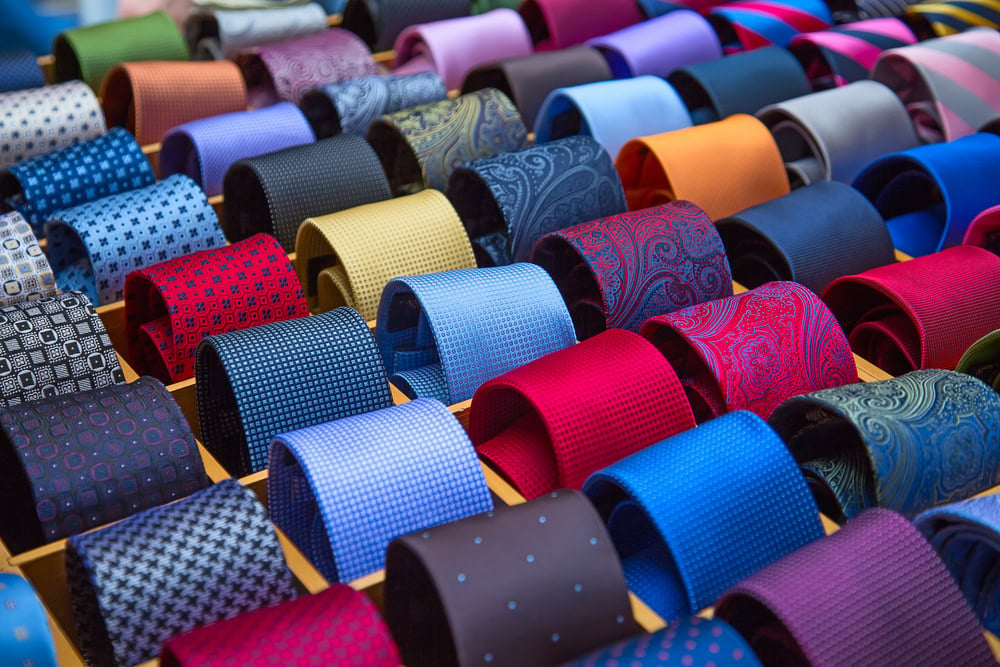Is It Permissible for Men to Wear a Cravat (Necktie) Made of Silk?
Answered by Shaykh Abdul Sami‘ al-Yaqti
Question
Is it permissible for men to wear a cravat (necktie) made of silk?
Answer
“Cravat” is a Latin word translated into Arabic meaning necktie, a long piece of fabric no wider than three fingers, wrapped under the shirt collar and knotted at the throat, extending to about the waist or belt of the trousers.
It is permissible for men to wear neckties made of silk, whether manufactured or natural.
The Ruling on Wearing Artificial Silk
The tie made of artificial silk, called synthetic silk, is a fabric produced from natural fibers like wood pulp or cotton through chemical processing, resembling natural silk in appearance and feel but less costly and widely available in local and global markets.
The difference between natural and synthetic silk is barely distinguishable except by a professional expert. Synthetic silk is not considered true silk, even if it is commonly referred to as silk among people and traders in the markets. The consideration is in the name, and the name does not change its reality or ruling, so it is a permissible fabric.
Thus, from a Sharia perspective, wearing a necktie made of artificial silk is permissible.
The Ruling of Wearing Natural Silk
As for neckties made of natural silk, which is produced by the silkworm, this requires some detail.
The prohibition of wearing silk for men is mentioned in many prophetic hadiths. For example, the Messenger of Allah (Allah bless him and give him peace) took silk in his right hand and gold in his left and said: “These two are forbidden for the males of my nation.” [Abu Dawud]
However, the jurists noted that Islamic Law allows men a little of it, as reported by Umar ibn al-Khattab (Allah be pleased with him): The Prophet (Allah bless him and give him peace) “forbade wearing silk, except the size of two or three or four fingers,” [Muslim] meaning only up to the width of four fingers, with no consideration of length. [See: Hashiyah ibn Abidin]
Based on this exception, the jurists (Allah have mercy on them) permitted men to use silk for a flag of a garment, such as embroidery and engraving on it, and for the collar of a robe or shirt, shoulders of a cloak, a patch of fabric, and what is sewn on the edges of sleeves, the buttonhole of clothes, buttons, etc., as long as it is less than the width of four fingers.
The Ruling on Natural Silk Neckties
This exception applies to wearing a silk necktie (cravat) for men, as it is narrower than four fingers. It is considered a tie for the purpose of adornment and is not an independent garment but a part of the shirt and is not worn separately. The consideration is for the primary object, not the accessory.
However, I advise the questioner to avoid wearing a natural silk necktie to avoid disagreement, as some contemporary jurists lean towards its impermissibility because it falls under the general prohibition of silk for men. You may instead choose a necktie made of synthetic silk as an alternative, as it resembles natural silk in appearance and feel.
May Allah clothe us and you in the garments of the people of Paradise.
And Allah is the bestower of correctness.
[Shaykh] Abdul Sami‘ al-Yaqti
Shaykh Abdul Sami‘ al-Yaqti is a Syrian scholar born in Aleppo in 1977. He obtained his degree in Shari‘a from the Shari‘a Faculty of Damascus University, a Diploma in Educational Qualification from the Faculty of Education at Aleppo University, and a Diploma in Shari‘a and a Master’s in Shari‘a from the Faculty of Sharia, and Law at Omdurman University in Sudan. He is currently writing his doctoral thesis.
He studied under esteemed scholars such as Shaykh Abdul Rahman al-Shaghouri, Shaykh Mustafa al-Turkmani, and Shaykh Dr. Nur al-Din Itr, among others. Shaykh al-Yakti has worked in teaching and cultural guidance in orphanages and high schools in Aleppo. He served as an Imam, Khatib, and reciter at Sheikh Zayed Grand Mosque in Abu Dhabi and as a certified trainer for Khatibs in Abu Dhabi’s Khatib Qualification Program.
He is involved in developing and teaching a youth education program at Seekers Arabic for Islamic Sciences.
Among Shaykh al-Yaqti’s significant works are “Imam al-Haramayn al-Juwayni: Bayna Ilm al-Kalam Wa Usul al-Fiqh” and the program “The Messenger of Allah Among Us (Allah bless him and give him peace).”
